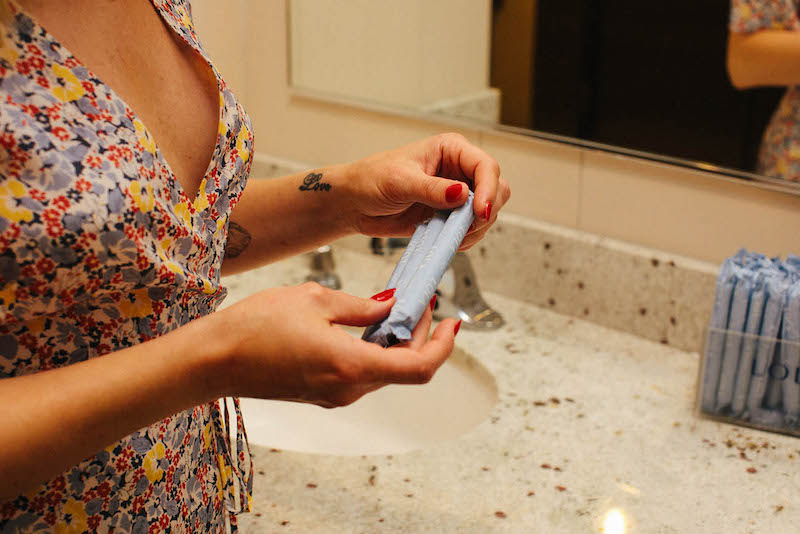WeWork’s community team members are the soul of the We community. Heart of We highlights how their hard work and passion improves the daily lives of WeWork members across the globe.
WeWork community lead Jess Bates has a habit of raiding the trash at WeWork 1601 Vine St in Los Angeles. A self-dubbed “sustainability detective,” she keeps a watchful eye for stray recyclables mistakenly thrown in the regular garbage.
“The trash hole is right next to the recycling hole in our building,” explains Bates, 34, who says that her prior experience in the restaurant industry made her sensitive to the waste that is produced by single-use utensils and containers. Not long after arriving at WeWork eight months ago, she developed a habit of peeking into the bin at random times during the day. “Probably half the time I’d find things that could be recycled in the trash bin,” she says.
At first, she’d go through the garbage herself, pulling out the recyclable items—but then she had a better idea. She made larger labels for each bin, with pictures of the types of items that could go in each one. It helped.
“I see more stuff in the recycle bin now,” she says, noting that when the bags go out to the trash, there are many more recycle bags than there used to be.
Now that she’s tackled the recycling issue, Bates has moved on to the next sustainability frontier: the women’s bathroom. “I noticed that the tampons we provide as an amenity in the women’s restroom were not sustainable and had chemicals in them,” says Bates.

She broached the subject with her building service manager and learned that more sustainable tampons were being considered, but that most were (inexplicably) made with a plastic casing. The challenge: to find a sustainable brand that also aligned with WeWork’s plastic-free policy.
Bates joined the search, tracking down a company called LOLA that made sustainable, chemical-free sanitary products. As a result of her sleuthing, a sustainable-tampon pilot program is now in the works across 12 WeWork buildings.
“What can I say?” she says. “I’m really passionate about waste!”
We spoke to Bates about her other passions, future sustainability goals, and more.
Member who influenced her most: Jenn Kim, who is a cofounder of Food Period. “The company supplies snacks for different times during your [menstrual] cycle,” Bates says. She appreciates that the company’s products are all-natural and based on holistic healing. “It’s nice to see more and more companies focused on women’s health,” she adds.
Core value: Authenticity. “It’s important to be who I am at any point in the day—that’s always changing because we all have different fronts for who we are,” says Bates, who appreciates occasionally being able to bring out her “quirky” side at work. “When appropriate, of course—there are times I have to pull back on being goofy and weird in a meeting,” she says.

Passion outside of work: Bates makes organic soaps, which she sells at farmers markets. “Instead of being tired at the end of the day and kicking back to relax, I make soap,” she says. The essential oils in her soap are natural—her favorite scent is orange patchouli—and she keeps the business as low-impact as possible. “There is no plastic packaging, and all of my supply containers are recyclable.”
Her favorite place on earth: As a child, Bates says her family occasionally took trips to California from their home in Iowa. “When we’d get into the mountains, I would just stare,” she recalls. “I would feel this burst of love coming from my chest, to see something so out of my realm of experience.” To this day, the mountains are her favorite place to be. “I feel so at peace, so at one with nature.”
Future sustainability plans: “My next frontier is work clothing,” says Bates. She plans to throw a clothing-swap happy hour in the near future, so that she and her members can recycle their clothes.






